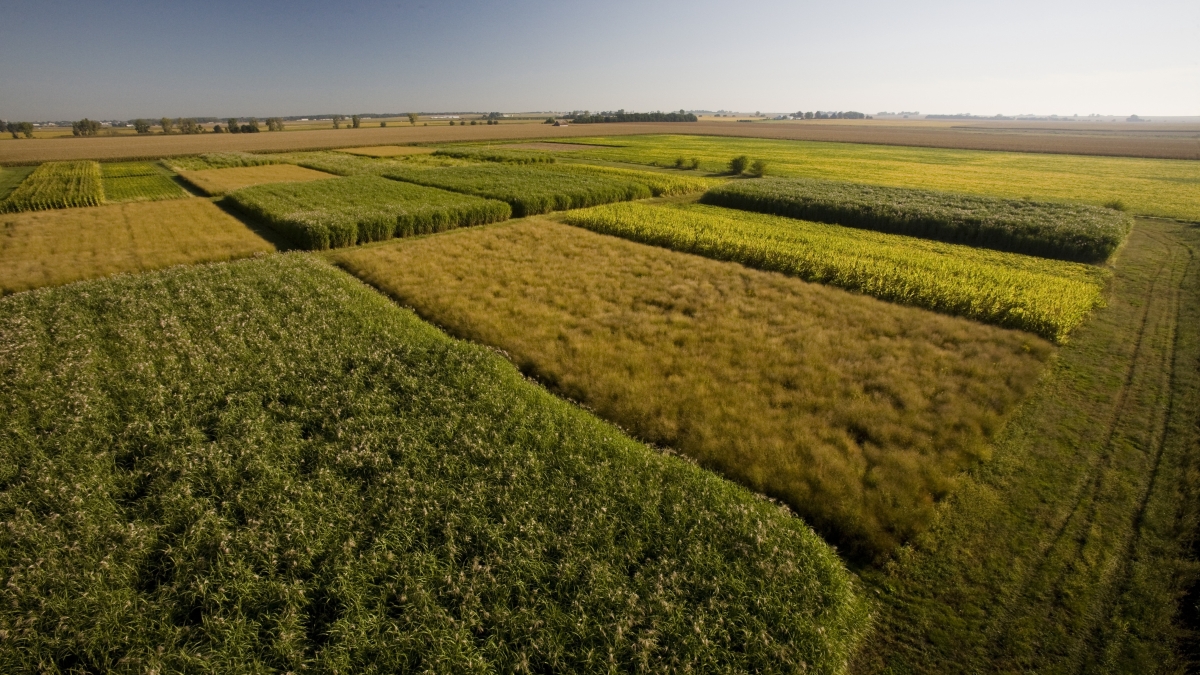ASU researchers to explore large-scale deployment of biomass energy crops

Arizona State University (ASU) researchers will embark on a novel renewable energy project with support from the National Science Foundation (NSF) through its Water Sustainability and Climate program (WSC).
NSF is providing $1.5 million to ASU to identify suitable locations across the United States where perennial biomass energy crops (e.g., miscanthus and switchgrass) could be grown sustainably. The five-year interdisciplinary project will integrate physical, agricultural and economic elements, embedded within a high-performance computing (HPC) framework, to identify geographically sustainable “hot-spots,” areas best-suited for expansion of perennial bioenergy crops.
“This effort brings together researchers from diverse backgrounds to explore critically important questions related to domestic energy security and large-scale climate change,” said Matei Georgescu, assistant professor in the School of Geographical Sciences and Urban Planning. Georgescu is the principal investigator of the project.
The use of corn for ethanol production carries side effects, including food security concerns owing to its use as a staple food crop. Use of perennial feedstocks, such as miscanthus or switchgrass, offers a promising opportunity to decrease reliance on the use of food crops for energy production. Their sustainable expansion and utility for renewable energy purposes could significantly offset use of fossil fuels and combat greenhouse gas-induced climate change.
To avoid competition with food crops, the WSC-ASU project team will determine whether large-scale deployment of perennial bioenergy crops is sustainable by focusing their efforts on abandoned and degraded farmland over the contiguous U.S.
“From water, climate and long-term sustainability points of view we need to improve our understanding of impacts from the deeper rooting system of perennials, including effects on the soil water column,” said Georgescu. “For example, is the soil water column replenished on an annual basis or is the drawdown going to adversely affect the crop’s growth during subsequent growing seasons, reducing crop yield and energy production in the long run?”
To explore these questions, state-of-the-art models will be utilized to quantify impacts and diagnose feedbacks on hydroclimate, assess effects on crop yield and evaluate economic profitability associated with perennial bioenergy crop growth in identified hot-spot areas.
“This research will explore biofuel development with a sophisticated analysis of its sustainability and impacts on hydroclimate, crop yield and economic valuation,” commented Luc Anselin, Director, Regent’s Professor and Walter Isard Chair in the School of Geographical Sciences and Urban Planning.
By focusing on the long-term sustainability potential of perennial biomass energy crops, the NSF funded project will initiate a new avenue of renewable energy research at ASU.
“Through the transdisciplinary nature of our research, projects like these not only expand our renewable energy research capabilities, but provide new solutions that address global energy challenges,” said Sethuraman Panchanathan, senior vice president with the ASU Office of Knowledge Enterprise Development. “This project advances our knowledge in the area of biomass research, while creating increased possibilities for greater economic impact.”
The WSC-ASU team will focus their efforts on four coupled elements.
Georgescu, WSC-ASU team PI, will lead all hydro-climatic modeling activities aimed at revealing the most suitable hot-spots of sustainable perennial biomass energy expansion.
Netra Chhetri, co-PI and assistant professor with joint appointments in the School of Geographical Sciences and Urban Planning, and Consortium for Science, Policy and Outcomes at ASU, will lead all crop modeling activities. Chhetri will quantify perennial biomass energy crop yield from the hot-spots and assess energy offset potential of U.S. consumption.
Michael Hanemann, co-PI and the ASU Julie A. Wrigley Chair in Sustainability and professor in the W.P. Carey School of Business, will oversee all economic modeling activities. Hanemann will evaluate economic potential for the production of perennial bioenergy crops in the U.S., incorporating a significant long-run sustainability constraint for land and water.
Alex Mahalov, co-PI and the Wilhoit Foundation Dean's Distinguished Professor in ASU’s School of Mathematical and Statistical Sciences, will oversee the integration of all computing activities within ASU’s massively parallel HPC framework. Mahalov will lead the effort to enhance all economic and crop models with an ensemble-based uncertainty quantification strategy implemented in a distributed-memory parallel computing architecture. A simulated stochastic modeling system will be created to demonstrate developments.
All PIs are affiliated with ASU’s Global Institute of Sustainability. The School of Mathematical and Statistical Sciences, the School of Geographical Sciences and Urban Planning, and the Consortium for Science, Policy and Outcomes are all research units in ASU's College of Liberal Arts and Sciences.